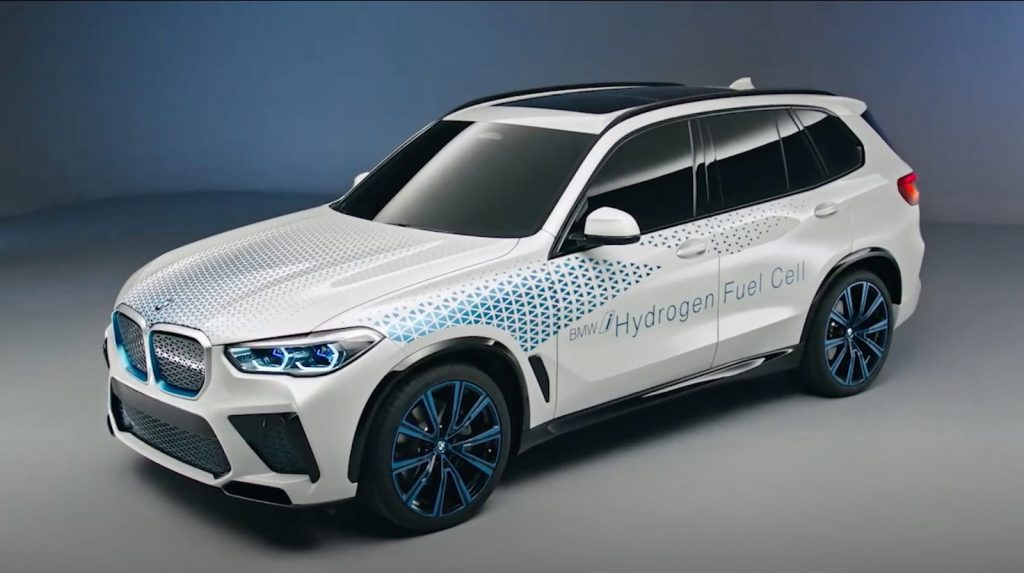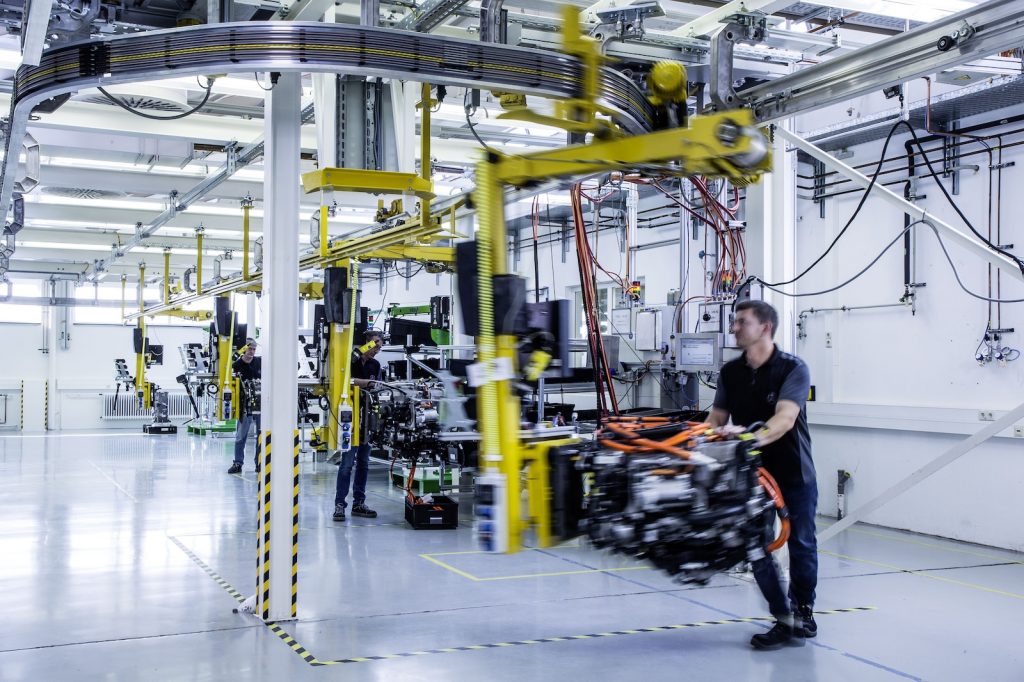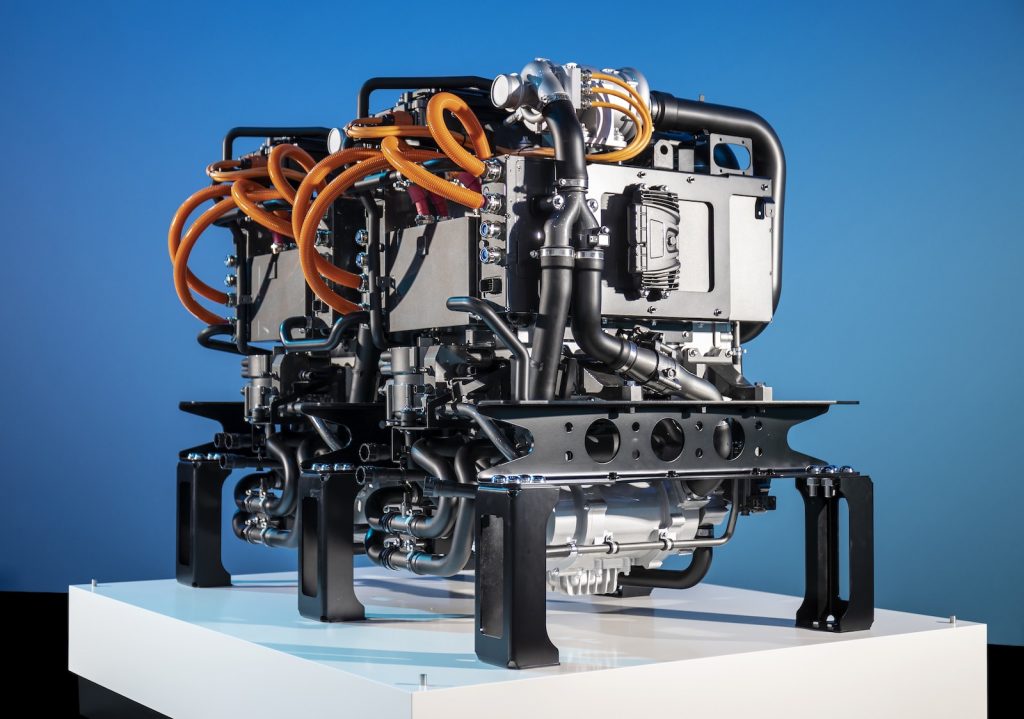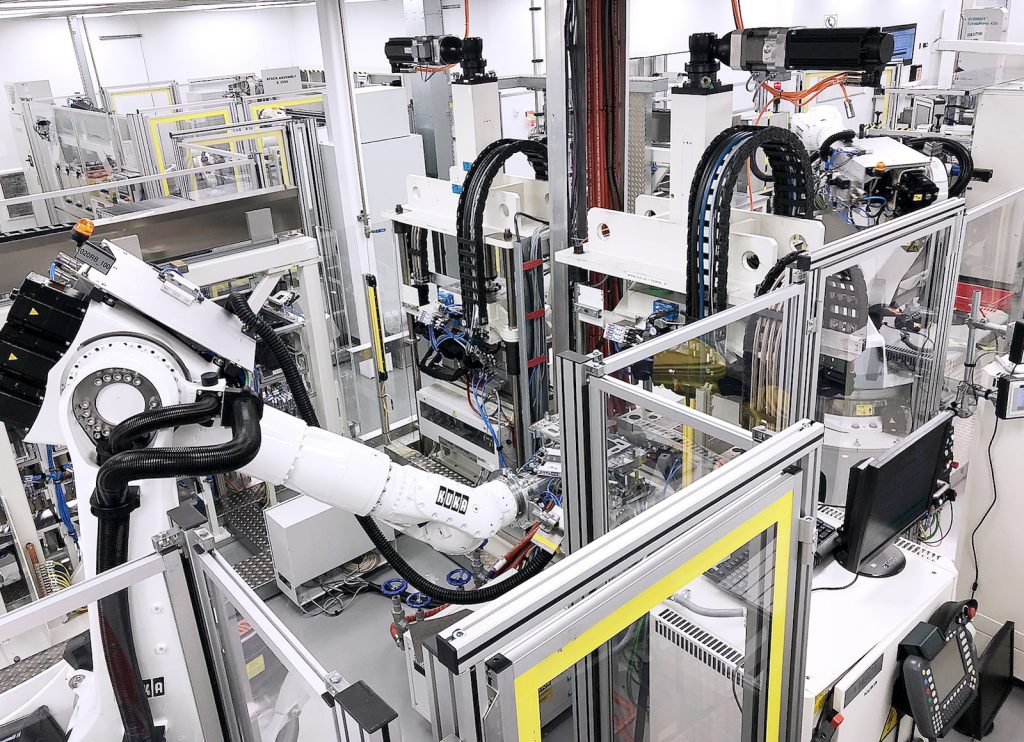Three major European manufacturers are planning big investments in hydrogen fuel-cell technology, both in the commercial and heavy-duty truck segments.

Currently, only a handful of manufacturers produce fuel-cell vehicles, or FCVs, all of them Asian. And their products are available in only limited markets. But proponents believe there are significant opportunities for hydrogen technology moving forward and BMW, Volvo and Daimler appear to agree.
Fuel-cell vehicles offer significant advantages, such as longer range than battery-electric cars, as well as quick refueling. The challenge is the lack of a refueling infrastructure, but there are signs that this is being addressed, particularly in Europe, through public-private partnerships.
An ongoing debate
Currently, there are three manufacturers producing FCVs: South Korea’s Hyundai and Japan’s Honda and Toyota. All have focused on passenger vehicles like the Hyundai Nexo and recently redesigned Toyota Mirai.

The Japanese giant has partnered with BMW on several different projects. The first saw them bring to jointly develop the Toyota Supra and BMW Z4 sports cars.
Now, BMW is getting ready to launch a hydrogen-powered version of its X5 Sport Activity Vehicle. Based on the same underlying technology in the Mirai, the fuel-cell utility vehicle will reach market next year, BMW CEO Oliver Zipse announced today during the automaker’s annual shareholder’s meeting.
There is an ongoing debate over where hydrogen vehicles could develop the strongest demand, however. And a number of proponents believe the bigger opportunity is in the medium and heavy-duty truck segments. The argue that hydrogen power offers key advantages over battery drive technology in such applications. Notably, trucks can store enough of the lightweight gas to deliver 1,000 miles or more range, while refueling takes minutes, not hours, as with an extended-range battery.
Displacing diesel

In an interview with the Financial Times, Daimler Trucks CEO Martin Daum said the automaker is planning to invest heavily in hydrogen and expects it will gain on conventional diesel-powered trucks by 2027, with sales going “steeply up” after that.
In March, Daimler Truck formed its own partnership with Volvo Group creating a fuel-cell operation called Cellcentric. It plans to launch production in 2025, its fuel cells going into vehicles to be sold by both brands.
The two truck companies have both been investing heavily in battery technology, as well, but they see electrification largely focused on light to medium models of short to mid-range. Hydrogen will be used for heavier trucks traveling longer distances, said Daum, with the two technologies likely to split the truck market about 50-50 as diesel fades out.
Hydrogen technology has come a long way since it first gained serious intention back in the 1990s. Fuel-cell “stacks” have grown lighter, more efficient and less expensive. The real challenge, however, is developing an infrastructure to support fuel-cell vehicles, whether passenger vehicles or heavy-duty trucks.
Here’s the chicken. Where’s the egg?
“It can be seen as a chicken and egg” problem, Volvo Group CEO Martin Lundstedt told the FT. “But we have said we will go for it. We will deliver the chicken. Someone else can deliver the egg.”

The partners estimate they will need 300 hydrogen fueling stations by 2025 in Europe, 1,000 by 2030. And they think this will require close public-private cooperation. There’s already support from several governments, including Germany. There are now 90 such stations in that country alone and, in March, the German government outlined a target of boosting that to 100. Seven major cities have been targeted, including Stuttgart, Munich, Frankfurt and Hamburg.
France and several other countries also are developing plans for hydrogen distribution networks.
Other manufacturers see opportunities
A number of other manufacturers are looking at opportunities to put fuel-cell technology on wheels, including Jaguar Land Rover, the British subsidiary of India’s Tata Motors. General Motors operated a fuel-cell joint venture with Honda, though the U.S. partner has so far focused on stationary applications for the technology.
On the heavy-duty side, Both Toyota and Hyundai are developing heavy truck applications for hydrogen power. The Korean giant showed off a concept hydrogen semi-truck last autumn and then, in December, launched a new subsidiary dubbed HTWO take the technology into new arenas, including boats and trains, as well as trucks.








How long before Elon gets on board? No mention on how they plan on producing the hydrogen.